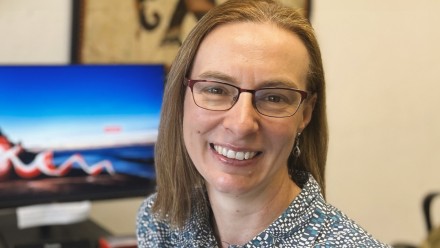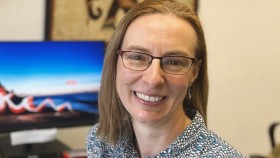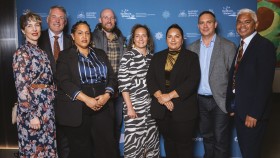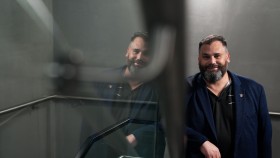Supporting our Pacific neighbours reduce burden of vaccine-preventable diseases
Share
Dr Meru Sheel collaborates with the Australian Regional Immunisation Alliance which has been funded $3M to support immunisation activities in the region.
Dr Meru Sheel has a wealth of experience studying the technical aspects of vaccine development as well as applied epidemiology in immunisation. Recently Sheel was part of a consortium of academics who founded the Australian Regional Immunisation Alliance (ARIA)*, coordinated by the National Centre for Immunisation Research and Surveillance. The School’s Professor Ross Andrews is also a member of the Alliance.
“ARIA aims to reduce the impact of vaccine-preventable disease in our region by working with Governments and partners to strengthen and expand immunisation activities,” says Sheel.
“It’s exciting to be part of an independent alliance that provides technical and policy advice to our Government and internationally. We have many members with strong collaborations and partnerships across the region, and it’s a great opportunity to work alongside them.”
The Alliance recently saw success through their Regional Immunisation Support and Engagement (ARIA-RISE) program, and was awarded $3 million by the Australian Government’s Department of Foreign Affairs and Trade (DFAT) Indo-Pacific Centre for Health Security, to further support immunisation activities in the region. Through this grant the Alliance will enhance in-country capacity to deal with vaccine preventable diseases by providing technical advice on improving vaccine coverage, better surveillance and response, and the introduction of new vaccines to ultimately prevent outbreaks.
“We don't expect outbreaks from vaccine-preventable diseases, but they do happen. Measles has seen a global resurgence of about 87% in 2018/19 with large outbreaks in Samoa and Tonga for example, and we want to be able to prevent this and minimise their impact,” says Sheel.
“In the current pandemic environment, we need to be extra vigilant about maintaining routine immunisation programs in the region. Widespread community transmission of COVID-19 in many parts of Asia means that immunisation services have been disrupted, posing risk of increase diseases like measles, diphtheria and vaccine-derived polio.”
It is also expected that ARIA will also be able to support potential rollout of a COVID-19 vaccine in the Pacific region.
“Australia is a world leader in the field of immunisation, so we must support our neighbours to improve their public health. By improving public health in our region, we also act to improve our own health security,” says Sheel.
*ARIA’s partner organisations include the National Centre for Immunisation Research and Surveillance; Burnet Institute; The University of Sydney; Telethon Kids Institute; The Royal Children’s Hospital Melbourne; Murdoch Children’s Institute; The University of Melbourne; The Kirby Institute, University of New South Wales; and Australian National University.
**Learn more about the Australian Regional Immunisation Alliance and award of $3M for the Regional Immunisation Support and Engagement program.















